Related Research Articles
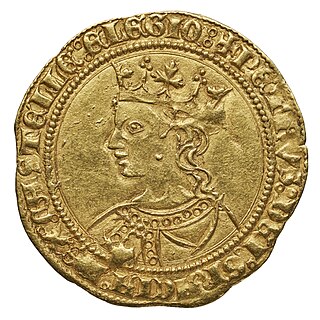
Peter, called Peterthe Cruel or the Just, was King of Castile and León from 1350 to 1369. Peter was the last ruler of the main branch of the House of Ivrea. He was excommunicated by Pope Urban V for his persecutions and cruelties committed against the clergy.

Benjamin D'Israeli (1730–1816) was an Italian-born English merchant and financier, the grandfather of the British prime minister Benjamin Disraeli, Earl of Beaconsfield.

Jewish philosophy includes all philosophy carried out by Jews, or in relation to the religion of Judaism. Until modern Haskalah and Jewish emancipation, Jewish philosophy was preoccupied with attempts to reconcile coherent new ideas into the tradition of Rabbinic Judaism, thus organizing emergent ideas that are not necessarily Jewish into a uniquely Jewish scholastic framework and world-view. With their acceptance into modern society, Jews with secular educations embraced or developed entirely new philosophies to meet the demands of the world in which they now found themselves.
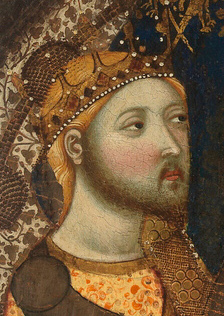
Henry II, called Henry of Trastámara or the Fratricidal, was the first King of Castile and León from the House of Trastámara. He became king in 1369 by defeating his half-brother Peter the Cruel, after numerous rebellions and battles. As king he was involved in the Fernandine Wars and the Hundred Years' War.

The Abravanel family, also spelled as Abarbanel, Abrabanel, Avravanel, Barbernell, or Barbanel – literally meaning Ab ("father") rabban ("priest") el – is one of the oldest and most distinguished Jewish families. It first achieved prominence on the Iberian Peninsula during the Middle Ages. Its members claim to trace their origin to the biblical King David. Members of this family lived in Seville, Córdoba, Castile-Leon, and Calatayud. Seville is where its most prominent representative, Don Judah Abravanel, once dwelt.
In early modern Europe, particularly in Germany, a court Jew or court factor was a Jewish banker who handled the finances of, or lent money to, royalty and nobility. In return for their services, court Jews gained social privileges, including, in some cases, being granted noble status.
Isaac ben Judah Abarbanel, commonly referred to as Abarbanel, was a Portuguese Jewish statesman, philosopher, Bible commentator, and financier.

Judah Leon Abravanel or Abrabanel, otherwise known by the pen name of Leo the Hebrew, was a Portuguese–Jewish philosopher, physician, and poet. His work Dialogues of Love was one of the most important philosophical works of his time.
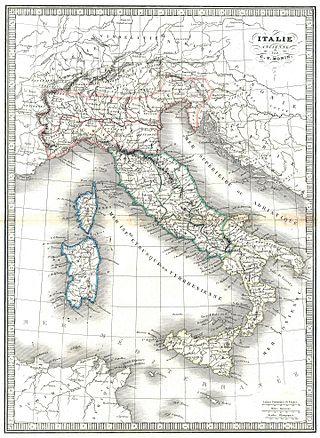
The history of the Jews in Italy spans more than two thousand years to the present. The Jewish presence in Italy dates to the pre-Christian Roman period and has continued, despite periods of extreme persecution and expulsions, until the present. As of 2019, the estimated core Jewish population in Italy numbers around 45,000.
Joseph Nasi, known in Portuguese as João Miques, was a Portuguese Sephardi diplomat and administrator, member of the House of Mendes/Benveniste, nephew of Dona Gracia Mendes Nasi, and an influential figure in the Ottoman Empire during the rules of both Sultan Suleiman I and his son Selim II. He was a great benefactor of the Jewish people.

Pedro Álvarez de Toledo y Zúñiga was a Spanish politician. The first effective Spanish viceroy of Naples, in 1532–1552, he was responsible for considerable social, economic and urban improval in the city and southern Italian kingdom in general. He was the father-in-law of Cosimo I de' Medici, Grand Duke of Tuscany.
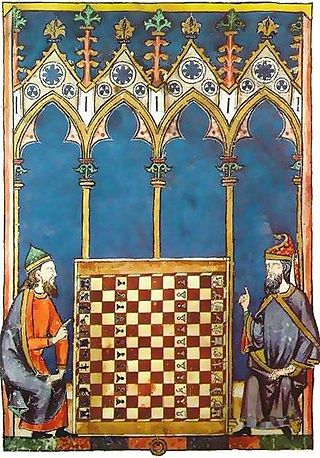
The history of the Jews in the current-day Spanish territory stretches back to Biblical times according to Jewish tradition, but the settlement of organised Jewish communities in the Iberian Peninsula possibly traces back to the times after the destruction of the Second Temple in 70 CE. The earliest archaeological evidence of Hebrew presence in Iberia consists of a 2nd-century gravestone found in Mérida. From the late 6th century onward, following the Visigothic monarchs' conversion from Arianism to the Nicene Creed, conditions for Jews in Iberia considerably worsened.

The Benveniste family is an old, noble, wealthy, and scholarly Sephardic Jewish family of Narbonne, France, and northern Spain established in the 11th century. The family was present in the 11th to the 15th centuries in Hachmei Provence, France, Barcelona, Aragon, and Castile.
Gracia Mendes Nasi, also known as Doña Gracia or La Señora, was a Portuguese Jewish philanthropist, businesswoman, and one of the wealthiest women of Renaissance Europe. She married Francisco Mendes. She was the maternal aunt and business partner of João Micas, who became a prominent figure in the politics of the Ottoman Empire. She developed an escape network that saved hundreds of conversos from the Inquisition.
Menahem ben Aaron ibn Zerah was a Navarrese rabbi and codifier born in the Kingdom of Navarre, probably at Estella, in the first third of the 14th century.
Aaron Samuel ben Moses Shalom of Kremnitz, also Abu Aaron ben Samuel ha-Nasi of Babylonia, was a personage who was considered until the turn of the 20th century to be a fictitious creation of the Traditionists (Zunz) —those who, in their desire to find teachers and originators for everything, invented him in order to announce him as the father of prayer-interpretation and mysticism. But the publication of the Chronicle of Ahimaaz, by Adolf Neubauer, has demonstrated that Aaron is not altogether a creature of the imagination. It is true that legend has far more than history to say about him, and that only the barest outlines of his real career are accessible. Aaron was the son of a high dignitary in Babylonia, a certain Samuel, who, according to R. Eliezer of Worms, was a Nasi (president).
Benvenida Abrabanel, also written as Benvenida Abravanel, was a Sephardic philanthropist and banker-businesswoman. She lived in early modern Italy and was an influential member of the wealthy Abrabanel family. She is mentioned in numerous literary, rabbinic, legal, and archival sources of the time.

Samuel ben Meir Ha-Levi Abulafia, was the treasurer of king Pedro I "the Cruel" of Castile and founder of the Synagogue of El Transito in Toledo, Spain.

Jewish heraldry is the tradition and style of heraldic achievements amongst Jewish communities throughout Europe and abroad. Included are the national and civic arms of the State of Israel, noble and burgher arms, synagogal heraldry, heraldic displays and heraldic descriptions. Jewish Heraldry is commonly influenced by its country of origin, yet often preserves common Jewish symbolisms such as the Lion of Judah or the Star of David.
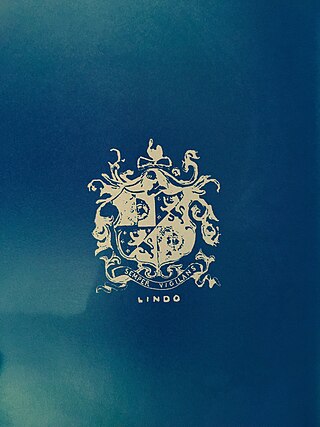
The Lindo family was a Sephardic Jewish merchant and banking family, which rose to prominence in medieval Spain.
References
- ↑ "ABRAVANEL, ABARBANEL - JewishEncyclopedia.com". www.jewishencyclopedia.com. Retrieved 2020-05-12.
- ↑ "Benvenida Abravanel | Jewish Women's Archive". jwa.org. Retrieved 2020-05-12.